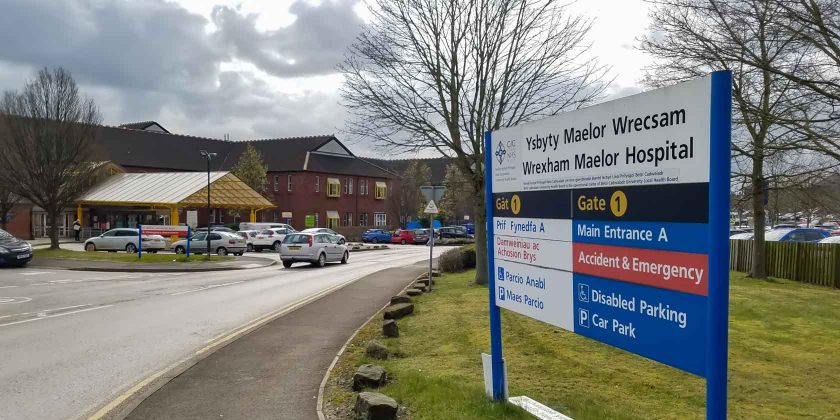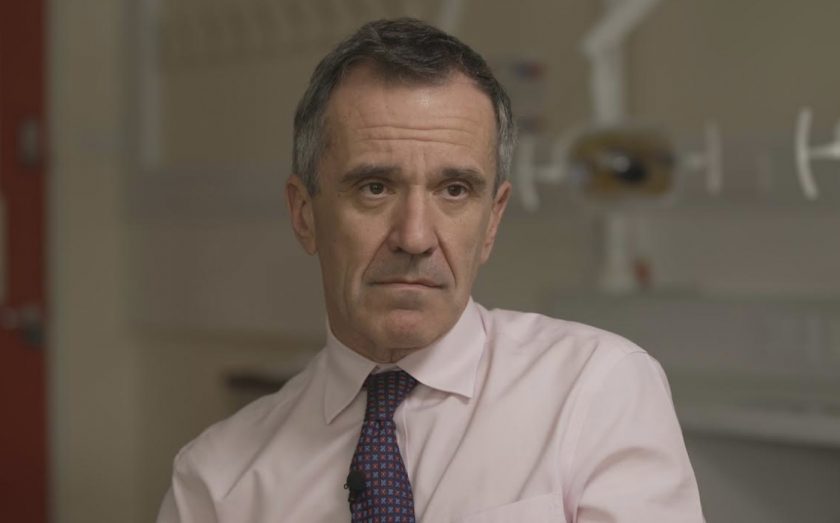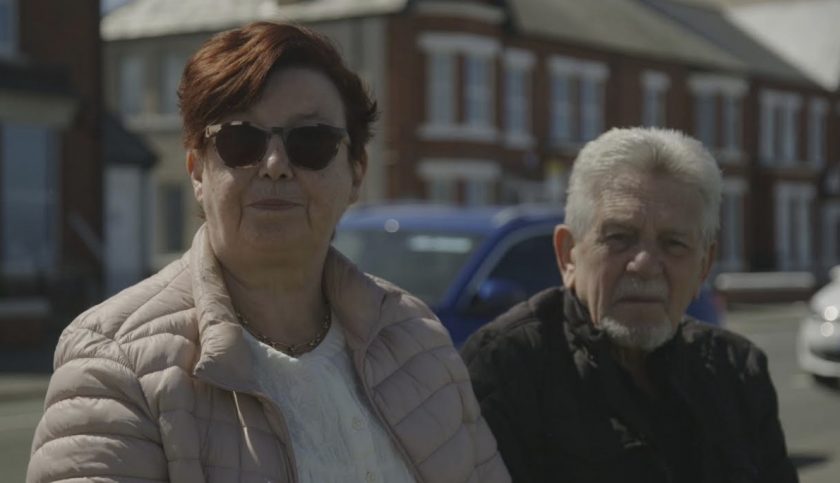Patient hospital treatment time over 60% longer in Wales compared to England according to new study

Despite having more beds and more nurses per head patients in Wales are on average spending over 60% longer being treated in hospital compared to England, a BBC investigation has found.
The finding has come from research carried out by the Nuffield Trust – one of the UK’s leading organisations looking at health data.
This winter as the NHS had to deal with the Omicron outbreak as well as seasonal demand, BBC Wales Investigates was given access to film over five months with teams of staff in Betsi Cadwaladr Health Board to get a glimpse of the pressures being faced.
At Wrexham Maelor’s Accident and Emergency Department the BBC Wales team saw first-hand how staff struggled to find space to assess patients, with many stuck in ambulances outside.
The unit’s manager Lindsey Bloor says she’s having to apologise to patients for unacceptably long waits, but staff are doing all they can.
Lindsey Bloor said: “For me personally having someone outside on an ambulance for 9 hours is very uncomfortable, and often we will have a plan to bring the longest person in, but then someone will come into the waiting room with chest pains, for example and clinically is more urgent than a patient that is stable on the back of an ambulance.”
Delays at A+E especially during winter has been a long term issue. 95% of patients should be seen and treated within 4 hours, but Wales has never hit that target and the figures have got worse over the last decade as they have struggled to cope with demand.
An inefficient system?
But other key data suggests Wales has a deeper problem with treating patients, once they make it into hospital.
BBC Wales Investigates asked the Nuffield Trust to look at the performance of health care in Wales, and the average length of time it takes to treat a patient in Wales stood out.
In Wales the average time for hospital treatment is 7 days, while in England it’s just over 4 days. That’s 63% longer for treatment in a Welsh hospital compared to England.

Betsi Cadwaladr Medical Director Nick Lyons | Photo: BBC
Mark Dayan, Head of Public Affairs at the Nuffield Trust said the Length of Stay is a key indicator of efficiency.
He was surprised by the results, and said the large difference couldn’t be wholly explained by Wales’s greater health needs.
He said:“That’s a massive difference and that really matters to the running of the Health Service because that determines how many patients you can get through it.”
“And there hasn’t been much improvement in Wales over the last decade either, so I think we need to look seriously into the possibility that Wales is simply not succeeding in treating patients safely at the speed they could be treated at, in England.”
“That means that despite having more nurses and despite having more beds it’s not seeing the same increase in its ability to treat more patients.”
Long waiting lists
As well as meeting staff under pressure to keep the system going, BBC Wales Investigates met patients waiting too long for treatment.
One of those is Roma Goffett from Rhyl. She should have had a second hip replacement two years ago but she’s heard nothing and is now increasingly dependent on her partner Geoff. She said it’s had a big impact on her health:
“Now. I’m overcompensating. So I’m damaging my new hip. Twice I fell because the right leg gave way and the last fall I’ve torn all the ligaments in my arm. I’ve torn ligaments in my leg.”

Roma Goffett from Rhyl | Photo: BBC
“They can’t do anything about my leg and I’m having, still having physio for my arm, but I can’t use my arm properly.”
Patients waiting for referred treatment are now waiting almost twice as long those across the border in England.”
“Average waiting times are now 24 weeks in Wales, compared to 13 in England. Mark Dayan of the Nuffield Trust says this is a worrying trend.”
“That’s twice as long as a waiting time that to be honest, isn’t really acceptable in England to start with.”
“It’s missing all the targets there. So I think patients in Wales are already missing out on care that really they should expect to be getting from a Health Service in a developed country and the risk is that may get even worse.”
Staff shortages
The programme highlights the issue of staff shortages across the NHS. At the Cancer Centre in Ysbyty Glan Clwyd, hundreds of patients have continued to be treated throughout the pandemic, but long term staff shortages have made it challenging for frontline staff, like Ward Manager Julie Roberts and her team:
“We’ve had staff in tears on many occasions unfortunately due to the pressure and amount of work because our work hasn’t slowed down.”
“We haven’t got enough permanent staff at the moment to cover all the clinics so we have to rely on bank health workers with the essential skills that we need.”
NHS Wales has an estimated 1,700 vacancies in nursing alone, but the Nuffield Research for BBC Wales Investigates revealed a particular problem with consultants too.
Betsi Cadwaladr is a health board under pressure.
Medical Director Nick Lyons says the challenge has attracted new people, but he is concerned about keeping the staff he needs to do the job.
“I do worry there will be people who are exhausted, who are tired, who now may now be looking at their pension to see if it would allow them to retire early and that will potentially prove challenging for us, not least because there is a backlog of work that we now need to be eating into.”
Can things be turned around?
In response to the Nuffield Trust’s figures on length of stay, Judith Paget the Chief Executive of NHS Wales argued that it was a hugely complex system that couldn’t fixed by changes in the NHS alone, but plans were in place.
“I recognise we need to speed up some of the changes that we’ve got in place. We’ve had resources made available by Welsh Government to do so and I and everybody who works in the NHS will be trying to escalate those responses as we go forward.”
Mark Dayan of the Nuffield Trust says the figures should act as a warning of the challenges ahead, and urged NHS Wales to learn lessons from across the UK to avoid falling further behind.
“The risk is not of some sort of sudden crisis that precipitates an overnight collapse.”
“The risk, I think really is more of a kind of steady decline over many years that takes Wales towards the same place that Northern Ireland is today.”
“Where waiting years for care honestly, is the norm to an extent where, for some services the treatment on offer is so distant that it may as well not be there.”
- BBC Wales Investigates: Under Pressure: Spotlight on the NHS airs on BBC One Wales at 9pm on Thursday 9 June and will be available on iPlayer.
Spotted something? Got a story? Email: [email protected]
Latest News
